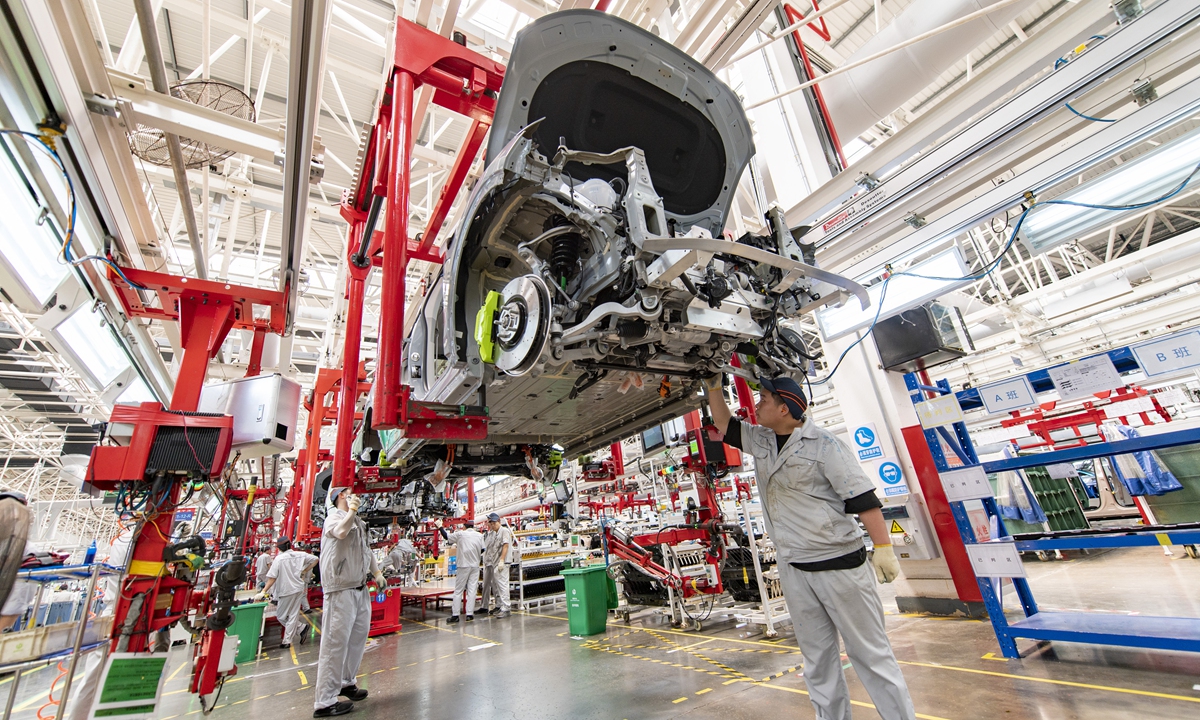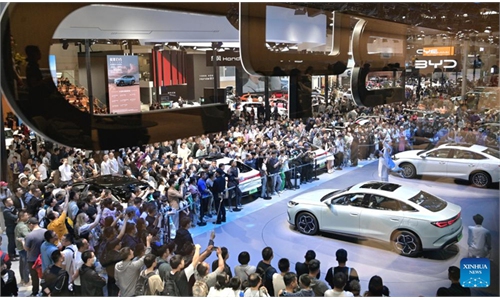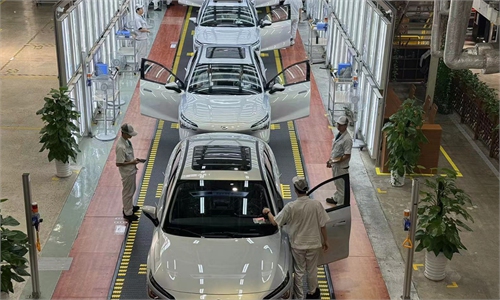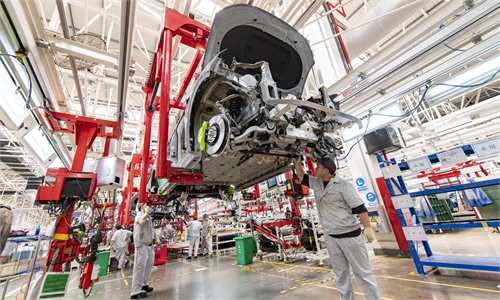China’s automakers show impressive performances in H1
Burgeoning NEV industry a result of tech innovation, full competition: experts

Workers are busy at a production line of new-energy vehicles (NEVs) in Jinhua, East China's Zhejiang Province on July 2, 2024. The volume of NEV production is rising driven by growing demand. Zhejiang is striving to produce more than 1.2 million NEVs annually, or more than 60 percent of the province's total automobile production, by 2025, and its NEV output will account for about 10 percent of the country's total. Photo: VCG
Major Chinese carmakers have released their results for the first half of 2024, with exports and new-energy vehicles (NEVs) making remarkable performances despite challenges. China's NEV industry will remain healthy and grow faster, thanks to favorable national policies, strong demand and intelligence-technology integration, analysts said.
NEV giant BYD said that its first-half profit rose 24.4 percent year-on-year to 13.63 billion yuan ($1.92 billion), according to a stock exchange filing.
NEV sales reached a record high, ranking first in the world, with an increasing market share and expanding brand influence, BYD said. The company accelerated its global expansion, and the progress of localized manufacturing sped up the development of its NEV business in overseas markets.
Anhui Jianghuai Automobile Group Corp said on Wednesday that its first-half net profit surged by 93.84 percent to about 301 million yuan. The company is accelerating a shift to the NEV sector, with efforts focused on passenger vehicles, according to the company's financial results.
As of Wednesday, at least 137 A-share listed companies in the auto industry had released their interim results, which showed that their combined revenue had risen 20.52 percent year-on-year, according to media reports.
Cui Dongshu, secretary-general of the China Passenger Car Association, attributed the sound performance of China's auto industry to a rapid electrification transformation, continuous tech innovation and strengthened after-sales services.
Empowered by China's continuously strengthening manufacturing industry, Chinese auto companies have notable advantages in the manufacturing of components, including batteries and electric machines, Cui told the Global Times on Thursday.
There is no so-called overcapacity in China's NEV sector, as it maintains a comparatively high growth rate of about 30 percent annually, Cui said.
A key reason for the expansion of China's new-energy industry is global long-term demand, analysts said, calling for examining the issue over a longer time frame.
It is unreasonable for certain Western politicians and media outlets to accuse China's new-energy sector of having "overcapacity" just by measuring current demand. Global supply and demand are market-driven factors, and Chinese automakers' efforts to develop NEVs underscore their confidence in the car industry globally, Wu Shuocheng, a veteran automobile industry analyst, told the Global Times on Thursday.
Global demand for new-energy products is on the rise. According to a study by the International Energy Agency, global NEV sales will reach 45 million units in 2030, rising to about 65 million in 2035, up from about 14 million in 2023.



